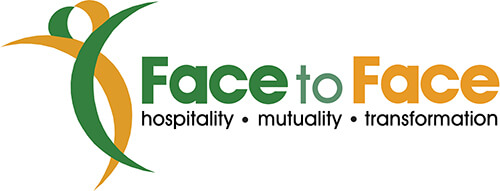Justice Requires That Legal ID Be Affordable to All
FROM THE LEGAL INTELLIGENCER
By Niki Ludt
JANUARY 26, 2015
If you live in Pennsylvania, and don’t drive, you wouldn’t have a driver’s license, which would have negative ramifications for you, given the many types of transactions for which a driver’s license is asked to be shown. There’s an alternative, of course—a Pennsylvania non-driver’s photo ID, issued by the Pennsylvania Department of Transportation. But those needing non-driver’s IDs are finding themselves in a catch-22, because they need the ID, but obtaining one is prohibitively expensive for a large segment of those people.
State-issued photo ID is essential for a host of activities: getting a job, opening a bank account, obtaining housing, accessing Social Security and public benefits, starting treatment with a new physician, obtaining prescription medications, pre-registering for hospital procedures, even applying for college or simply entering an office building. And with the General Assembly’s enactment last April of the transportation bill known as Act 89, the fee for obtaining non-driver’s photo ID increased by a whopping 104 percent, from $13.50 to $27.50, ranking Pennsylvania’s non-driver’s ID fee as the sixth-highest in the nation. Ironically, the increased non-driver’s ID fees are slated to fund infrastructure improvements, such as road repairs. But Pennsylvania drivers who drive on the roads saw an increase of just 3.5 percent in their fee, a mere $1 increase for licenses renewed in 2015 and 2016.
Although, in absolute terms, $14 is a small amount, most of those needing the ID, who must now pay $27.50, are poor and can’t afford it. Indeed, they couldn’t afford the fee before the increase was levied, and for years relied on the benevolence of former Philadelphia Kixx soccer player Adam Bruckner’s nonprofit, Philly Restart, which paid the fees to PennDOT for those who couldn’t afford to. After the fee increase, in an effort to help as many people as possible given limited resources, Bruckner continued to write checks payable to PennDOT for $13.50 to pay the fee for needy requestors, who then had to somehow come up with the additional $14. Many were unable to do so. Although in 2014, Philly Restart wrote far more checks for IDs than it had written in 2013, only about 2,500 IDs were actually purchased in 2014, far fewer than in 2013. Regrettably, hundreds of checks have gone uncashed, indicating that the requestors were unable to raise the additional $14. These individuals remain without IDs.
Perhaps adding insult to injury, in July 2014, the fee to obtain a birth certificate in Pennsylvania also doubled, from $10 to $20, with the extra fees to be used to help the Department of Human Services fund programs for child abuse prevention. A person applying for a non-driver’s ID is required to present a birth certificate to obtain the ID. The net result is that many people who need birth certificates or non-driver’s IDs or both will be unable to obtain them, further worsening their already burdensome circumstances. Organizations such as Philly Restart, Homeless Advocacy Project and Face to Face Legal Center, along with countless other social service agencies, shelters and halfway houses throughout the city, use their limited resources to pay for thousands of birth certificates each year.
The problem is vast. According to the Brennan Center for Justice, as many as 13 million U.S. citizens lack access to documents proving their birth and citizenship. Expert testimony in the voter ID case in 2013 revealed that across Pennsylvania alone, hundreds of thousands, perhaps as many as half a million, registered voters did not have legal ID. The number of all Pennsylvanians lacking photo ID would necessarily be much larger. To attempt to redress this predicament in Pennsylvania, the Mayor’s Office of Community Empowerment and Opportunity, in conjunction with the Advancement Project, Face to Face Legal Center, Homeless Advocacy Project, Project HOME and SeniorLAW Center have been working toward the goal of finding ways to eliminate the cost to low-income individuals of obtaining non-driver’s IDs and birth certificates.
Thirty-three states—virtually all of them having fees much lower than Pennsylvania’s $27.50—provide for waivers of non-driver’s ID fees, usually based on age, indigence, homelessness, or some combination thereof. There is precedence in Pennsylvania for allowing a low-income fee waiver for state-issued photo ID. Before the voter ID law was overturned, PennDOT allowed a waiver to anyone who affirmed that they were indigent and unable to pay, and needed the ID to vote. Authorization to charge birth certificate fees resides in the state Department of Health, which, presumably, could authorize a hardship waiver. Currently, fee waivers are given to veterans and their families without requiring any claim of inability to pay.
As a stark example of how lack of legal ID keeps people at a disadvantage, and how a fee waiver is a sensible solution, Face to Face Legal Center was recently contacted by a Department of Human Services (formerly the Department of Public Welfare) caseworker who was calling from the EARN Center to inquire whether Face to Face would pay for the legal ID of a job-searching applicant, a non-Face to Face client, who needed but could not afford ID. The caseworker said that the woman was applying for Temporary Assistance for Needy Families (TANF), and was facing a deadline in her application that required her to secure ID. When the caseworker was informed that Face to Face had no resources to pay for IDs, she responded, “Do you know where I can send her?”
There’s a fundamental unfairness in continuing to place additional financial burdens upon those least able to afford them, particularly where the result is to further reduce the quality of life for those suffering financial hardships. To ensure that everyone who needs the all-important photo ID is able to obtain one, fairness dictates that a waiver of photo ID and birth certificate fees be available to individuals who attest to their inability to afford such fees. Hopefully, Pennsylvania officials can be persuaded to follow the example of those states that provide fee waivers—maybe even to display a level of generosity that will make Pennsylvania a leader in alleviating suffering.
Niki Ludt, a 1983 graduate of Temple University School of Law, is the director of the Face to Face Legal Center and has been involved with this legal clinic for 23 years. She can be contacted at vludt@facetofacegermantown.org






